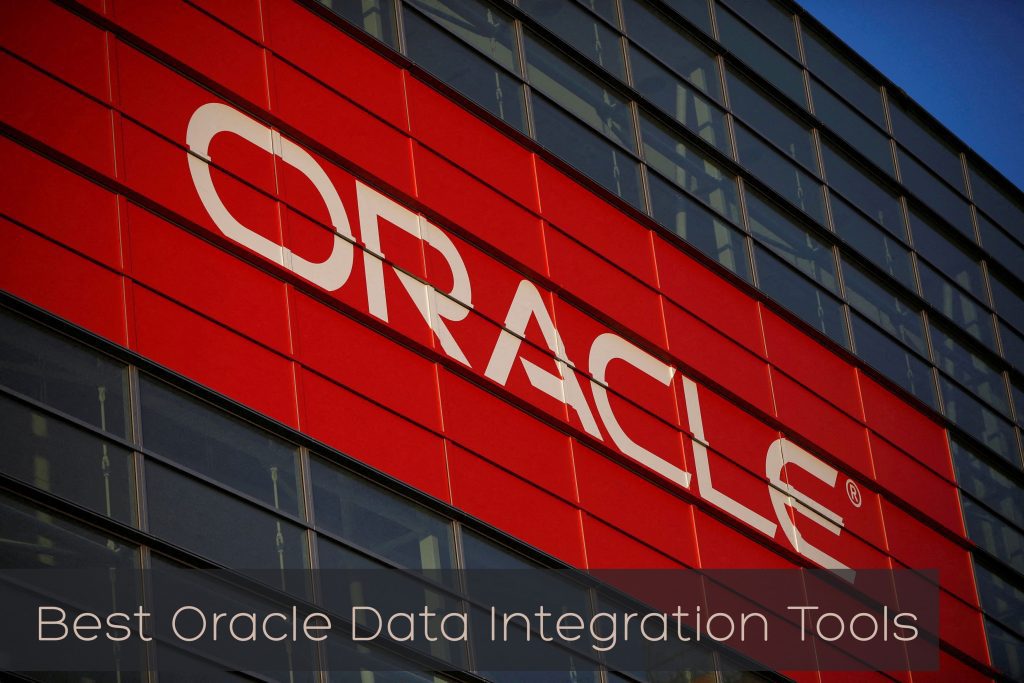In today’s fast-paced digital landscape, businesses heavily rely on data to make informed decisions and stay ahead of the competition. Oracle, a leading provider of database management systems, plays a critical role in storing and managing vast amounts of data for organizations worldwide. To maximize the value of this data, businesses need to seamlessly integrate their Oracle databases with various applications, tools, and platforms. In this blog post, we will explore the importance of data integration tools for Oracle, delve into their key features, and highlight some of the best solutions available to help you unlock the full potential of your Oracle data.
Data Integration Tools: Definition and Purpose

Data integration tools are software solutions that enable organizations to combine, process, and analyze data from disparate sources to create a unified, meaningful, and consistent view. These tools facilitate the extraction, transformation, and loading (ETL) of data into a central repository, such as a data warehouse, data lake, or other storage systems. The primary objective of data integration tools is to streamline data-related processes, ensuring data quality and consistency, and ultimately empowering businesses to make data-driven decisions. Specialized data integration tools for Oracle databases provide optimized features and connectors for seamless data exchange and processing.
Key Features of Data Integration Tools with Oracle Database Integration
- Oracle-Specific Connectivity: Data integration tools with Oracle support offer pre-built connectors or adapters for Oracle databases, ensuring seamless connection and data exchange between diverse systems and the Oracle database.
- Optimized Data Transformation: These tools provide transformation capabilities tailored to Oracle databases, including advanced data cleansing, enrichment, aggregation, and format conversions. This ensures data consistency and quality within the Oracle environment.
- Workflow Management: Data integration tools enable users to design, schedule, and monitor complex workflows that define the sequence of Oracle data integration tasks. This helps automate and orchestrate the data movement and processing within and between Oracle databases.
- Performance and Scalability: High-performance and scalable data integration tools can handle large volumes of Oracle data and execute complex data processing tasks efficiently. These tools often employ parallel processing, caching, and other optimization techniques to improve performance in Oracle environments.
- Error Handling and Monitoring: Robust data integration tools provide error handling and monitoring capabilities specifically designed for Oracle databases, enabling users to track data integration processes, identify issues, and alert users in case of failures. This helps maintain Oracle data quality and ensures smooth execution of data integration tasks.
- Security and Compliance: Data integration tools for Oracle databases should offer secure data transfer and storage, along with features like data masking, encryption, and access control to protect sensitive Oracle data and comply with data protection regulations.
Popular Data Integration Tools for Oracle Database Integration
Numerous data integration tools are available in the market, each with its unique set of features and capabilities. Some popular tools include:
Devart ODBC driver for Oracle
The Devart ODBC Driver for Oracle is a high-performance data integration tool that enables seamless connectivity between various applications and Oracle databases using the ODBC standard. This driver streamlines data integration tasks, ensures compatibility with ODBC-compliant applications, and optimizes data transfers for top-notch efficiency. With features like connection pooling, advanced security, and support for the latest Oracle server versions, the Devart ODBC Driver for Oracle offers a comprehensive, user-friendly solution for organizations seeking to effectively leverage their Oracle data across diverse platforms and applications.
Oracle Data Integrator (ODI)
Oracle Data Integrator (ODI) is a high-performance data integration tool designed to streamline data movement and transformation within the Oracle ecosystem. As a comprehensive solution, ODI enables organizations to efficiently consolidate, process, and manage their Oracle data across diverse sources and systems.
CData ODBC Driver for Oracle
The CData ODBC Driver for Oracle enables seamless connectivity between applications and Oracle databases, streamlining data integration tasks. With its compatibility, advanced security, and real-time data access features, this driver offers a user-friendly solution for organizations to effectively leverage their Oracle data.
Talend Data Integration
Talend is a versatile open-source data integration platform that simplifies the process of connecting, extracting, transforming, and loading data from various sources, including databases, file systems, and APIs. With its wide range of pre-built components and a user-friendly interface, Talend empowers organizations to effectively manage and leverage their data across different systems.
Informatica PowerCenter
Informatica PowerCenter is a robust and scalable data integration tool renowned for its performance, reliability, and flexibility in handling complex data integration tasks. By providing pre-built connectors and advanced features, PowerCenter enables organizations to seamlessly integrate, transform, and load data from multiple sources into target systems.
Conclusion
Data integration tools play a critical role in consolidating and processing data from various sources, empowering organizations to make informed decisions and drive business growth. By understanding the features and capabilities of data integration tools, businesses can choose the best solution that fits their specific needs and data infrastructure.
